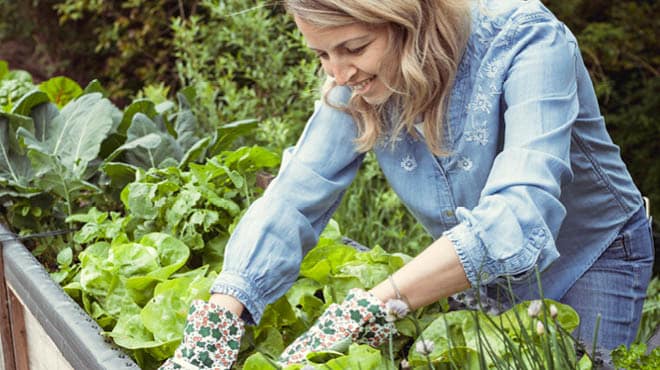The Ultimate Gardening Overview for Beginners: Everything You Need to Know
The Ultimate Gardening Overview for Beginners: Everything You Need to Know
Blog Article
Unlocking the Benefits of Gardening: An In-depth Check Out the Different Types and Their Effect On Wellness
Discovering the multifaceted benefits of gardening reveals a spectrum of methods that dramatically improve specific wellness. As we analyze these diverse horticulture techniques, it comes to be evident that their effect can reverberate on personal, social, and environmental levels, motivating a closer look at how these links create a natural story of alternative health.
Kinds Of Horticulture

Flower gardening, another prominent category, highlights the visual charm of grown flowers. This kind can improve landscapes and promote biodiversity by drawing in advantageous pollinators. Similarly, herb gardening involves expanding fragrant and cooking plants, adding both to cooking and all-natural treatments.
Container gardening offers convenience, allowing people with minimal area to engage in gardening by utilizing pots and planters. This approach is particularly prominent in metropolitan settings. Elevated bed gardening, on the other hand, includes creating elevated plots that enhance soil water drainage and availability, making it easier for gardeners to handle their plants.
Lastly, neighborhood horticulture fosters cooperation amongst people in shared rooms, advertising social interaction and cumulative duty. Each type of horticulture offers unique objectives and provides to various choices, making horticulture a versatile task that can be tailored to private needs and environments.
Mental Wellness Advantages
Participating in different types of horticulture not just yields substantial incentives such as fresh fruit and vegetables and gorgeous blossoms yet likewise supplies considerable mental health advantages. Study suggests that gardening can be a powerful tool for reducing stress, anxiety, and anxiety. The act of having a tendency to plants and growing a garden promotes a feeling of objective and success, which can boost total psychological health.
In addition, gardening encourages mindfulness, as it calls for individuals to focus on the here and now minute, whether it be planting seeds or nurturing growth. This mindfulness technique can lead to reduced rumination and boosted mood stability. The exposure to native environments during horticulture has also been connected to improved cognitive functioning and reduced sensations of fatigue.
Social interaction plays an important role in mental health and wellness, and neighborhood gardening initiatives supply opportunities for people to attach with others, fostering a sense of belonging. The shared experience of horticulture can cultivate relationships and assistance networks, better bolstering emotional durability.
Physical Health Benefits
Many people might not recognize that horticulture likewise provides considerable physical wellness advantages. Participating in horticulture activities calls for a series of physical motions, including bending, training, excavating, and growing, which collectively helpful resources contribute to improved toughness, important source adaptability, and endurance. These activities can improve cardio health by advertising a raised heart rate, therefore decreasing the danger of heart disease.
Additionally, horticulture can function as a moderate-intensity workout, assisting individuals accomplish advised physical task degrees. Researches show that routine engagement in gardening can shed considerable calories-- about 200-400 calories per hour, relying on the strength of the tasks carried out. Such calorie expense is advantageous for weight monitoring and total metabolic health.
Furthermore, exposure to sunshine during horticulture can facilitate the synthesis of vitamin D, which plays a crucial function in maintaining bone health and sustaining immune feature. In addition, the act of horticulture usually includes working with dirt, which has been connected to potential mental and physical health benefits because of the visibility of helpful bacteria. Gardening.
Social Connections Via Gardening
The communal aspects of gardening foster significant social links among people. Area gardens, specifically, serve as lively hubs where people from diverse histories integrated, growing not just plants however also relationships. These shared areas urge partnership, allowing individuals to trade expertise, skills, and resources, thereby improving their gardening experience and cultivating a feeling of belonging.
Engagement in horticulture activities typically leads to the formation of relationships and support networks. Participants often unite for typical goals, such as growing seasons, harvest celebrations, or instructional workshops, which reinforce interpersonal connections and create a sense of area. Such interactions can minimize feelings of seclusion and enhance mental well-being, as people locate friendship and sociability in shared undertakings.

Environmental Influence of Horticulture
Gardening considerably contributes to ecological sustainability in numerous means. Home gardens give crucial environments for numerous varieties, consisting of pollinators such as and butterflies, which are essential for community health and wellness.

Moreover, gardens play a critical duty in water conservation. Tactical landscapes, consisting of native plants and xeriscaping, lower water use and avoid drainage, consequently securing neighborhood waterways from pollution.
Conclusion

To conclude, gardening offers as a complex activity that improves health across different domain names. The varied types of horticulture-- including vegetable, flower, herb, container, and increased bed-- add to psychological and physical health and wellness, foster social connections, and advertise ecological sustainability. By involving in gardening methods, individuals can experience improved quality of life while also supporting area bonds and eco-friendly health and wellness. Inevitably, the holistic advantages of horticulture highlight its importance as a crucial aspect in improving general well-being.
Report this page